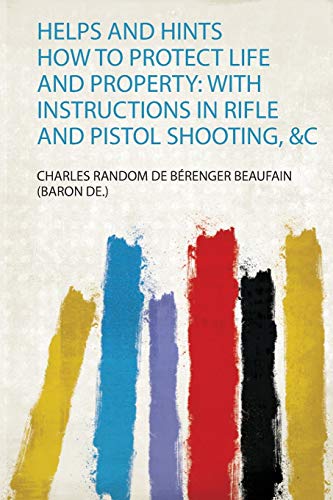berenger charles random (4 Ergebnisse)
FeedbackSuchfilter
Produktart
- Alle Product Types
- Bücher (4)
- Magazine & Zeitschriften (Keine weiteren Ergebnisse entsprechen dieser Verfeinerung)
- Comics (Keine weiteren Ergebnisse entsprechen dieser Verfeinerung)
- Noten (Keine weiteren Ergebnisse entsprechen dieser Verfeinerung)
- Kunst, Grafik & Poster (Keine weiteren Ergebnisse entsprechen dieser Verfeinerung)
- Fotografien (Keine weiteren Ergebnisse entsprechen dieser Verfeinerung)
- Karten (Keine weiteren Ergebnisse entsprechen dieser Verfeinerung)
- Manuskripte & Papierantiquitäten (Keine weiteren Ergebnisse entsprechen dieser Verfeinerung)
Zustand
Einband
Weitere Eigenschaften
- Erstausgabe (1)
- Signiert (Keine weiteren Ergebnisse entsprechen dieser Verfeinerung)
- Schutzumschlag (Keine weiteren Ergebnisse entsprechen dieser Verfeinerung)
- Angebotsfoto (3)
Sprache (2)
Preis
- Beliebiger Preis
- Weniger als EUR 20 (Keine weiteren Ergebnisse entsprechen dieser Verfeinerung)
- EUR 20 bis EUR 40
- Mehr als EUR 40
Gratisversand
Land des Verkäufers
Verkäuferbewertung
-
EUR 24,79
Währung umrechnenKostenlos für den Versand innerhalb von/der DeutschlandAnzahl: Mehr als 20 verfügbar
In den WarenkorbZustand: New. KlappentextrnrnThis is a reproduction of the original artefact. Generally these books are created from careful scans of the original. This allows us to preserve the book accurately and present it in the way the author intended. Since the origina.
-
Helps and Hints How to Protect Life and Property
Anbieter: PBShop.store UK, Fairford, GLOS, Vereinigtes Königreich
EUR 22,48
Währung umrechnenEUR 4,56 für den Versand von Vereinigtes Königreich nach DeutschlandAnzahl: 15 verfügbar
In den WarenkorbPAP. Zustand: New. New Book. Shipped from UK. Established seller since 2000.
-
Helps and Hints how to protect Life and Property, with Instructions in Rifle and Pistol Shooting, &c.
Verlag: London, J. & C. Adlard for T. Hurst 'for the Proprietor at the Stadium, Chelsea', 1835., 1835
Anbieter: Bernard Quaritch Ltd ABA ILAB, London, Vereinigtes Königreich
Erstausgabe
EUR 214,46
Währung umrechnenEUR 24,29 für den Versand von Vereinigtes Königreich nach DeutschlandAnzahl: 1 verfügbar
In den WarenkorbFirst Edition. 8vo, pp. vii, [1], 286, [2]; with woodcut title vignette, 10 plates (of which 2 folding), and numerous woodcut illustrations in text; very short tear to fold of one plate; a very good copy in near-contemporary half calf with pebble-grained cloth sides, spine gilt in compartments with gilt black morocco lettering-piece in one, marbled edges and endpapers, sewn on 3 sunken cords; skilfully rebacked, rubbed and slightly sunned, bump to top-edge of upper board; printed booklabel of J.C. Lowe, St Louis, to upper pastedown.First edition, with advice on riding and driving, illustrated by George and Robert Cruikshank. A marksman and inventor with an 'inclination to self-publicity and aggrandisement' (Credland), Charles Random de Berenger (17721845) in 1830 established 'the Stadium' or 'British National Arena' at Chelsea, where he encouraged 'manly and defensive exercises, equestrian, chivalric and aquatic games, and skilful and amusing pastimes', as detailed (or rather advertised) in the present volume. The Baron de Berenger's memory is marred, however, by his involvement in a fraud of the stock exchange in 1814, in which he artificially raised the value of Government stocks by falsely reporting the death of Napoleon. Cf. Credland, 'Charles Random, Baron de Berenger, inventor, marksman, and proprietor of the Stadium' in Arms & Armour III, no. 2 (2006), pp. 171-191. Language: English.
-
The Trial of Charles Random de Berenger, Sir Thomas Cochrane,.
Erscheinungsdatum: 1814
Anbieter: The Lawbook Exchange, Ltd., ABAA ILAB, Clark, NJ, USA
EUR 741,97
Währung umrechnenEUR 32,20 für den Versand von USA nach DeutschlandAnzahl: 1 verfügbar
In den WarenkorbLondon, 1814 (illustrator). London, 1814. The Great Stock Exchange Fraud of 1814 [Trial]. Random, Charles, Baron de Berenger, Principal Defendant. Dundonald, Thomas Cochrane, Earl of [1775-1860], Principal Defendant. Gurney, William Brodie [1777-1855], Reporter. The Trial of Charles Random de Berenger, Sir Thomas Cochrane, Commonly called Lord Cochrane, The Hon. Andrew Cochrane Johnstone, Richard Gathorne Butt, Ralph Sandom, Alexander M'Rae, John Peter Holloway, And Henry Lyte; For a Conspiracy, In the Court of King's Bench, Guildhall, On Wednesday the 8th, And Thursday the 9th of June, 1814: With the Subsequent Proceedings in the Court of King's Bench; Taken in Short Hand. London: Sold by J. Butterworth and Son, 1814. 604, [4] pp. Folding table. Includes four-page publisher catalogue. Octavo (8-1/2" x 5-3/8"). Later library cloth, red and black calf lettering pieces to spine. Light shelfwear and some soiling. Light browning and foxing to text, early owner signature (Joseph Tate) and faint library stamp to title page, a few library annotations to verso, another owner signature ("Wm Green. 1843") at head of main text, brief early annotations in a few places. $850. * Only edition. Gurney's is the most detailed account of one of the greatest English fraud cases of the nineteenth century. In 1814 Berenger, a Prussian aristocrat posing as an aide to Britain's ambassador to Russia, announced that Napoleon had been killed by Russian Cossacks. This news caused stock prices to rise. After discovering that Berenger's news was a hoax, which caused prices to drop, investigators discovered that six men had profited substantially from the false information. All were alleged to have been conspirators with Berenger. One of these men was Cochrane, a Member of Parliament, an admiral and one of the greatest naval heroes of the Napoleonic Wars. The case against him was weak and circumstantial, but he was, to the surprise of many, convicted, sentenced to 12 months in prison, fined ?1,000. and ordered to stand in the pillory opposite the Royal Exchange for one hour. In subsequent weeks, he was dismissed from the Royal Navy and expelled from Parliament. On the orders of the Prince Regent, Cochrane was humiliated by the loss of his appointment Knight of the Order of the Bath. A month later, however, Cochrane was re-elected unopposed and, following a public outcry, his sentence to th.





